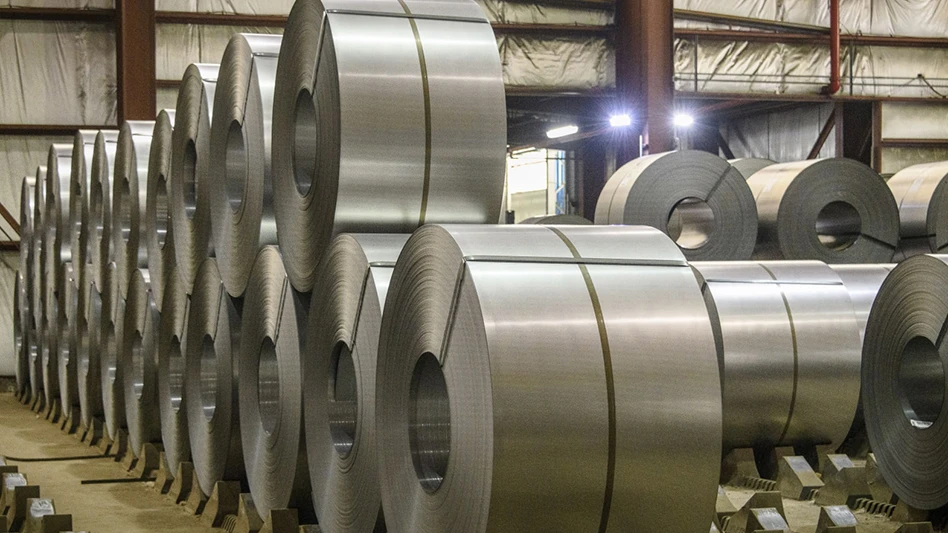The David J. Joseph Co. (DJJ), Cincinnati, is spinning off its Transportation Services Division into a separate company, though both will be owned by SHV North America Corp., part of the Netherlands-based conglomerate SHV Holdings NV. The spin-off will occur before the end of the year.
The spun-off transportation services company, as yet unnamed, will own (directly and through subsidiaries and joint ventures) what might be the largest private fleet of general-purpose railcars in the U.S. The company will also own and manage freight cars and locomotives in several industries, including the scrap industry, and will provide railcar management services to other railcar owners using a proprietary software package. Among the new company’s holdings is FerroDJJ S.A. de C.V., one of the leading railcar leasing and repair companies in Mexico.
David J. Joseph Co. will retain its presence as one of North America’s largest scrap companies. “The separation of transportation and scrap will allow each greater independence to focus on its respective business and to continue to distinguish itself in the market that it serves,” says DJJ president and CEO Louis F. Terhar. Terhar will soon be serving as non-executive chairman of both DJJ and the new transportation services company. The company has announced that Keith B. Grass will become president and CEO of DJJ.
Douglas F. McMillan, president of DJJ’s Transportation Services Division, has been named president and CEO of the new transportation company.
GROUPS UNITE TO SINK MESSY SHIPBREAKING
Several trade unions and environmental groups are banding together to urge a clamp-down on allegedly sloppy and dangerous shipbreaking activities occurring in nations such as India, Pakistan, Bangladesh and China.
Two international unions—the International Transport Workers Federation and the International Metalworkers’ Federation—along with several Indian unions issued a joint statement against the unsound shipbreaking practices in coordination with Greenpeace and the Basel Action Network.
The groups are calling on the Indian government to demand the decontamination of ships prior to their being exported to India, as well as having the government “ensure that effective occupational safety and health standards are enforced at the breaking yards, and that workers and the environment at the shipbreaking yards are not sacrificed for the sake of cheap steel.”
A release made jointly by the environmental and union groups calls shipbreaking “inherently hazardous in terms of worker safety and health,” claiming that “in Alang, India, nearly 400 workers are killed every year due to accidental fires and explosions.” The groups add that the situation is “made worse by the presence of hazardous substances such as asbestos and heavy metal paints contained in the ship’s structure.”
Tight regulations in North America and western Europe have caused ship owners in those nations to “use industrializing nations as a dumping ground for their toxic wastes and their worker safety liabilities,” the statement proclaims.
“Ship breakers in Asia are using their ability to exploit and abuse workers and the environment as their sole competitive edge,” adds Nityanand Jayaraman of Greenpeace International.
PRATT CHOOSES INDIANA
Pratt Industries of Melbourne, Australia, has chosen Valparaiso, Ind., as the site of its new 360,000-square foot recycled paper corrugating and finishing plant. The $31 million plant will employ about 260 residents of the town.
Not even on Pratt’s original list of Indiana cities to possibly locate to, fast action by the Northern Indiana Public Service Co. (NIPSCO) and state officials brought the site to the attention of Pratt.
NIPSCO put together a tour of possible Indiana sites for Pratt, with Valparaiso being on that list. Valparaiso’s proximity to Chicago was attractive to Pratt, says Rick Del Vecchio of NIPSCO. “They wanted to be close to the Chicago market because they will be recycling paper from Chicago and sending it back into that market.”
The city and state also offered Pratt an incentive package including tax breaks, training funds, road improvements and a rail spur. Pratt was also looking at sites in Illinois as well as in Indiana.

Explore the November 1999 Issue
Check out more from this issue and find your next story to read.
Latest from Recycling Today
- Fitch Ratings sees reasons for steel optimism in 2025
- P+PB adds new board members
- BlueScope, BHP & Rio Tinto select site for electric smelting furnace pilot plant
- Magnomer joins Canada Plastics Pact
- Out of touch with reality
- Electra names new CFO
- WM of Pennsylvania awarded RNG vehicle funding
- Nucor receives West Virginia funding assist





